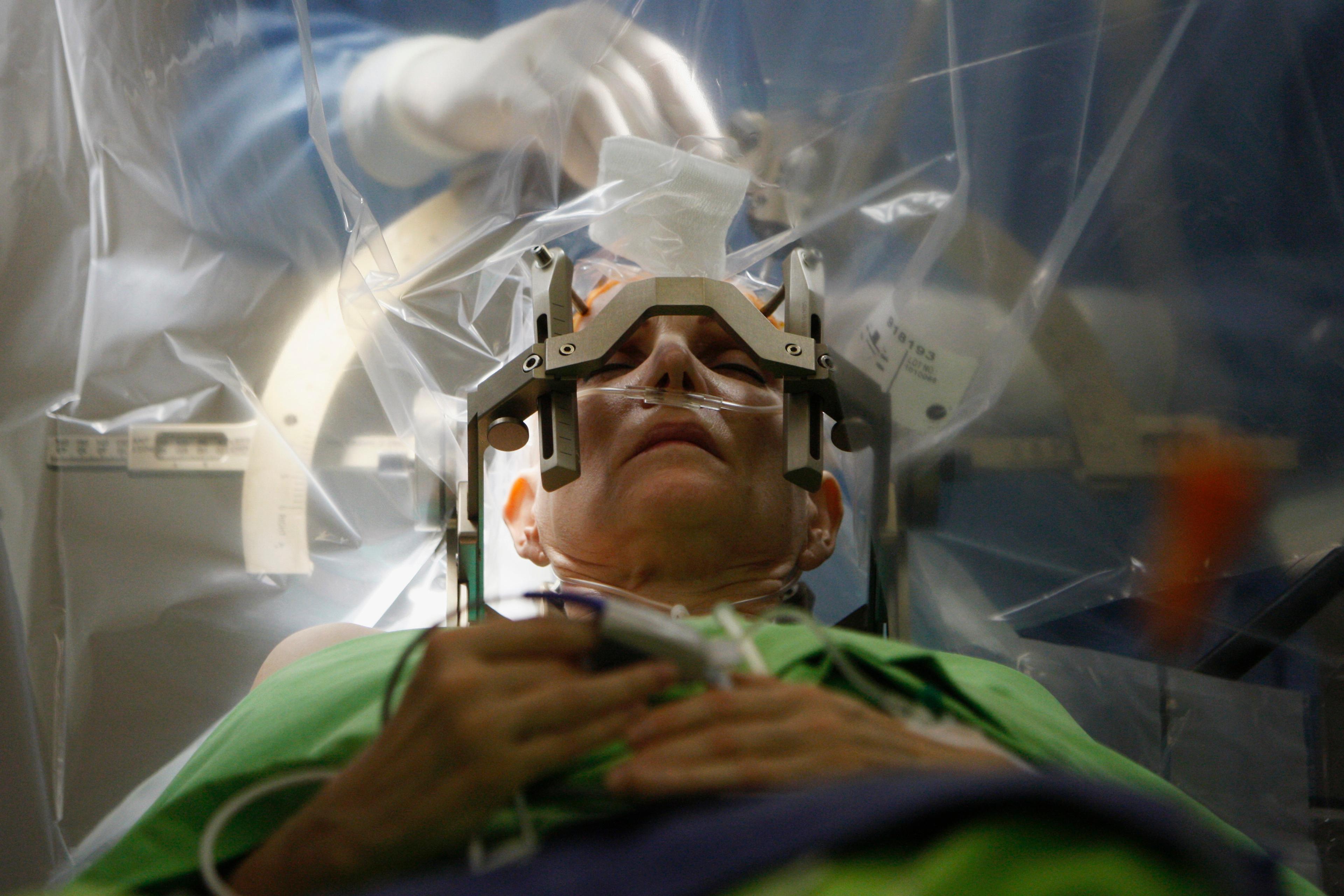All my life, I’ve struggled with the question of whether humans have ‘free will’. It catalysed my decision to become a psychologist and continues to inspire my research to this day, especially as it relates to the kinds of goals people set for themselves, and the effects of goal-striving on people’s happiness and wellbeing.
I’ve come to the conclusion that people really do have free will, at least when it is defined as the ability to make reasoned choices among action possibilities that we ourselves think up. Indeed, as a species, free will is one of our most amazing evolutionary adaptations – allowing us to cope flexibly with the profound and unpredictable complexities of our lives.
I understand that many philosophers choose to embrace some form of ‘determinism’ – and perhaps you do too. Determinism says that, at a deep level, humans have no real choice in what we do – it’s always our past, or our unknowable brain processes, or our immutable genetics, or some combination of these, that determine our actions; never our psychological selves.
Regardless of who is correct in this debate, my work has led me to a second conclusion that I consider even more important than whether we have free will or not. It’s that a belief in our own capacity to make choices is critical for our mental health. At the very least, this belief lets us function ‘as if’ we have free will, which greatly benefits us.
There are three main reasons why I consider belief in free will to be important and beneficial. The first is that feeling autonomous and self-determined – that you have free will – is a basic psychological need, and satisfying this need is critical for your mental health. This has been shown by decades of research in self-determination theory concerning the causes and sources of human wellness.
Since its development in the 1970s, a key distinction made in self-determination theory is between intrinsic and extrinsic motivation. Intrinsic motivation exists when we are enjoying what we are doing, when the doing is its own reward. For me, this might mean trying to learn a new song on the piano, trying to improve my tennis game, or trying to reach a beautiful mountain lake with my camera. In all these cases, I am making choices, learning new things, applying my skills, and having a fun time in the process.
In contrast, extrinsic motivation exists when we are mainly trying to earn money or other external rewards, such as trying to please or impress others, or we’re just gutting it out, ‘doing what we have to’. In these situations, we don’t really feel like it’s ‘us’ choosing what we do – instead, we feel that the situation is causing our behaviour. In a way, we have momentarily accepted determinism.
Hundreds of studies show that intrinsic motivation, compared with extrinsic motivation, produces better performance and creativity, more persistence and energy, and greater satisfaction and fulfilment. These studies also show that intrinsic motivation can be fragile – easily undermined when external rewards become too salient, or when we feel too controlled by what others think. For example, if I started taking photos mainly because I am being paid to do so, or because I want to impress my friends on social media, then my intrinsic motivation and enjoyment would likely wane.
Returning to the question of free will: if your intrinsic motivation (ie, your feeling of doing things because you chose and enjoyed them) were replaced by a feeling that you are only a choiceless machine driven by forces you cannot control, this would be bad for you. Losing your sense of free will, in this sense, might make your life much less enjoyable and interesting. Because of this, I encourage you to try to find, follow and develop your intrinsic motivations as much as possible.
Of course, not every important behaviour can be ‘fun’. During the 1980s, researchers working on self-determination theory discovered a second type of autonomous motivation, which they called identified motivation. Identified motivation exists when we believe in and identify with what we are doing, even if it is not enjoyable. Identified motivation helps us get important things done, even when those things are boring or aversive – and without sacrificing our autonomy. For example, changing a baby’s diaper becomes much more palatable, even rewarding, if we identify with maintaining our baby’s health. In a 2020 study of Pacific Crest Trail through-hikers (who were trying to backpack 2,650 miles in a single summer; an onerous but personally significant journey), I showed that their intrinsic motivation declined radically over the long and difficult summer – a classic ‘undermining’ effect – but that their identified motivation was able to pick up the slack, enabling them to complete the trail and experience great satisfaction, despite the suffering.
In contrast, introjected motivation exists when you are doing something that you only half want to do. Compared with identified motivation, introjected motivation is only partially internalised in the sense that you you feel somewhat ‘controlled’ in the behaviour – by yourself, not by others or by the situation. You ‘make’ yourself do it, to avoid guilt. In my Pacific Crest Trail study, for those hikers who experienced introjected motivation rather than identified motivation, it helped them to complete the trail, but they weren’t any happier as a result – finishing the trail was only a relief, not a meaningful and self-endorsed accomplishment.
Returning to the free will question: if your feeling of doing sometimes-unpleasant things because you agreed with and chose to be doing them were replaced by a feeling of having to make yourself do them, then you would suffer. Again, this is because, to be fulfilled, humans need to feel autonomous and self-determined: ie, that they are acting of their own free will. I recommend that, whatever ‘X’ you do, try to internalise it so that you at least have identified motivation, if not intrinsic motivation, for doing it. Try to reframe the situation, to recognise your own deeper reasons for doing X. If you can’t do that, then it might be a hint to stop doing X if you can, and to do something else instead!
So far, I’ve been talking about how freely determined motivation satisfies and fulfils us. The second reason why I consider belief in free will to be beneficial is that it makes you a better person. Studies in social psychology show clearly that, if people become convinced that they have no free will, there can be negative effects on their ethical behaviour. In these studies, participants typically read one of two versions of a news passage describing current scientific thinking: one that concludes free will is true and determinism is false, another that concludes free will is false and determinism is true.
Notwithstanding one or two inconsistent results, various studies have shown that participants primed to believe in determinism are more likely to cheat on a test when they think nobody will know (especially if they rate themselves as believing in, and accepting, the deterministic message of the passage); they are more likely to eat the unhealthier of two snack options (such as potato chips rather than carrots); they won’t wait as long before claiming a reward, resulting in a smaller reward; they can’t persist as long in a difficult task; and they are less likely to behave in a prosocial way, such as by helping others or giving change to a homeless person. Furthermore, they are less likely to take responsibility for their actions, and more likely to blame others or circumstances for their mistakes.
This line of research suggests that, if you believe in your own free will, then you act as if your choices matter – which provides you with many benefits. On the other hand, if you believe in determinism, then that belief tends to come true: you act as if you have no control, and suffer in many ways. That’s why I encourage you to always believe in your power to make choices, even in bad situations. Then take your best shot! Life is a game of chance, and you might as well play.
You might wonder why anyone would choose to believe in determinism, given the clear negative effects of this belief? There are several possible reasons. Some people might think that determinism is the most scientific and intellectually sophisticated position to take, and they like feeling smarter than others. Other people might welcome determinism’s invitation to escape responsibility, because admitting fault or blame is painful. Others still might find comfort in the idea that everything is predetermined and causally ordered, even if they can’t understand or affect that order; it provides a kind of answer to life’s uncertainties.
But surely it is more admirable to accept and embrace one’s capacity to make choices in life than to deny or evade it. This chimes with my third main reason why it’s beneficial to believe in free will: it is the most honourable position for you to take, the one with the most integrity.
According to existential philosophies (especially the work of Jean-Paul Sartre), humans are unique in the animal kingdom in that they can’t rely on automatic instincts and mechanisms like other animals can. Instead, humans must create themselves via the conscious choices they make. Writing in Escape from Freedom (1941), the psychoanalyst Erich Fromm argued this responsibility can be so terrifying that people will try to avoid it. Fromm used this analysis to explain the rise of Nazism, and we can see many parallels in the world today, with the rise of autocratic governments around the world. Autocrats provide people with structure, at the cost of their freedom. Fromm also explained why we are so tempted to make excuses when we fail at something: because we don’t want to accept responsibility for those failures.
I say: try to make good choices, and then take full responsibility for them. As Viktor Frankl observed in Man’s Search for Meaning (1946), since we cannot help but choose, we might as well choose what we really want – what our values tell us to do. This makes our claimed values real, rather than being mere pretensions.
For all the reasons I’ve given, I believe there is an overwhelming case that you are better off embracing, rather than denying, your own free will. The real problem isn’t whether you have choice but, rather, whether you are able to choose wisely. You exercise your capacity for choice every day – you might as well accept this so you can learn to do it better.
This Idea draws on arguments made in the author’s book Freely Determined: What the New Psychology of the Self Teaches Us About How to Live (2022).








